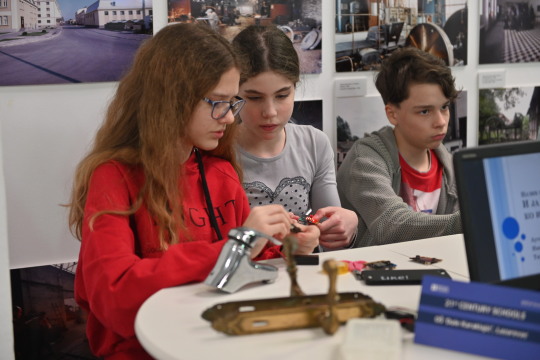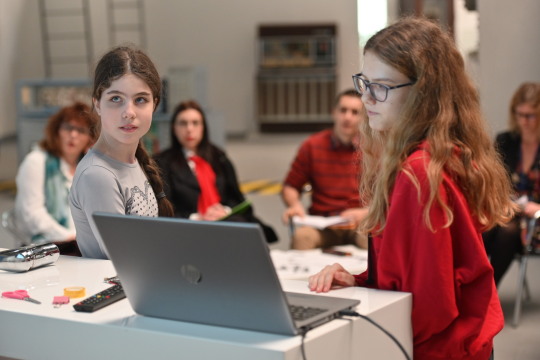TEACH FOR THE GREATER GOOD
Publication date: August 26, 2019
By the British Council
When two primary school students, from a small town in Serbia (Lazarevac), Nina and Tijana, first became familiarized with micro:bit coding device, they didn’t really think much of it. Yes, it was fun and engaging, and yes, it made learning easier but neither of them really wanted to become programmers in the future. But what changed their mind about IT and coding was the challenge to solve real-life problems by using technology, critical thinking and problem-solving skills.

Their primary school is open to children with special education needs, with many diagnosed with autism. They learnt that a lot of the students had trouble turning water taps off, which
increased the bills for the already struggling small-town elementary school. By using micro:bit devices, these girls were able to create an alarm system that would notify staff that a specific water tap had been left on for too long. Even better, they think a product like this would be extremely useful at homes of their friends who need a bit more care.
This school project was done as part of the British Council’s programme named “21st Century Schools” which aims to improve education systems in the Western Balkans. In the next three years, British Council will be equipping over one million students aged 10-15 years in over 4000 primary schools with critical thinking, problem-solving and coding skills and will be donating micro:bit handheld computers to each of the schools. The programme works in partnership with all relevant institutions in the region to ensure the new teaching skills remain part of the education systems after the programme ends. This is done through training of head teachers and teachers in each of the primary schools.
A report by the Regional Cooperation Council (RCC) shows that there are relatively high current graduate skill gaps in analytical and problem-solving skills, adaptability and decision-making skills, and concludes those are expected to increase in the future. Further, the ICT sector with annual growth between 5 to 10% across the Western Balkans region is one of
the fastest growing sectors with great potential to positively affect economic growth in the region.
This 10 million-pound programme, funded by the British Government, aims to address the employability of children in the long run and to help teaching practices be better. We are trying to help children to use all of their knowledge gained throughout years of schooling and to express their creativity and teamwork.
If we go back to the beginning of this blog post, and if you want to know what Nina and Tijana are doing now, they have just finished organizing a walk of support for their friends with autism. They have managed to organize a day of activities in their school and walk with their fellow citizens to raise awareness of this condition.

So, in the end, why are we teaching children to code? We are teaching them not to code but to understand how to achieve a greater good.
More information available at https://www.britishcouncil.rs/en/programmes/education/21st-century-schools
If you wish to engage in the conversation on Social Media use #21stCenturySchools

